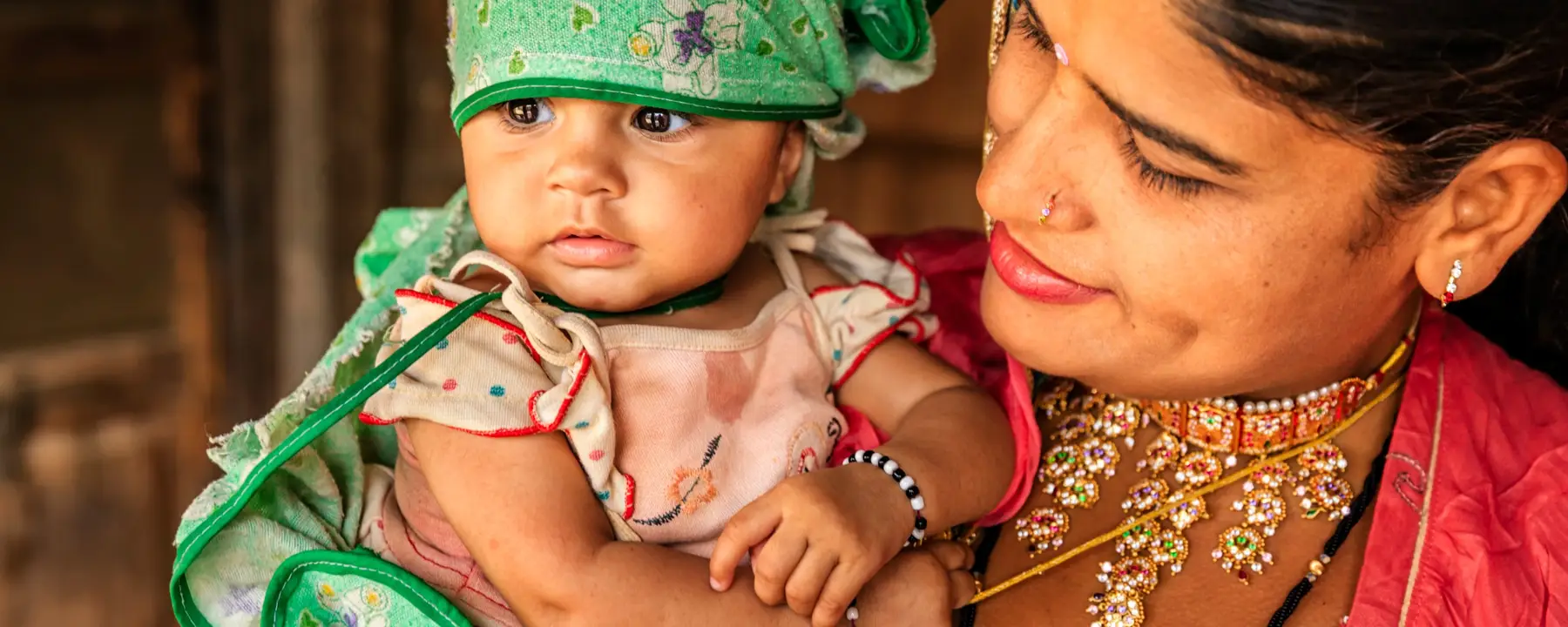Improving maternal and child health in high-need, low-resource areas
Over the last century, higher income countries have seen a reduction in maternal, fetal, and neonatal mortality. The same cannot be said for many low- and middle income countries, where improvements have been slow to materialize and the mortality rates for mothers and children remain significantly higher than in high-income countries.
In response to this problem and in support of the global effort to accelerate progress towards the United Nations’ Millennium Development Goals (succeeded in 2016 by the Sustainable Development Goals), the Eunice Kennedy Shriver National Institute of Child Health and Human Development (NICHD) established the Global Network for Women’s and Children’s Health Research. Formed in 2001 with co-funding from the Bill and Melinda Gates Foundation, the Global Network was created with a goal of building health research capacity in low-resource settings.
Informing Health Policy and Practice through Clinical Research and Evidence
The Global Network’s objective is to bring scientists from developing countries together with their peers from the United States, to focus on high-need areas such as life threatening obstetric emergencies, improving birthweight and infant growth, and improving birth practices to decrease maternal and child mortality.
In the past 15 years, the Global Network has conducted research in nine countries—India, Pakistan, Tibet, the Democratic Republic of Congo, Zambia, Kenya, Brazil, Guatemala, and Argentina—to address the major causes of maternal and newborn mortality in low-resource settings. The Global Network has studied many interventions, including the use of misoprostol to reduce post-partum hemorrhage, antenatal corticosteroids to improve neonatal survival after preterm birth, and neonatal resuscitation, as well as emergency obstetric and neonatal care.
Ongoing studies include one centered at two sites in India—as well as sites in Pakistan, Guatemala, and the Democratic Republic of Congo—where researchers are studying the effects of newborn feeding practices and pregnancy nutrition on mother and infant health. Researchers set out to determine whether a nutrition intervention for mothers three months prior to conception and continuing throughout the pregnancy will have a positive effect on infant size and birthweight.
The research and trials have led to changes in clinical practices for treating pregnant women and newborns, and provided a framework for evidence-based revisions to national health practices and policies.
Providing Statistical and Scientific Leadership as Data Coordinating Center
RTI plays an integral role in the Global Network, serving as the data coordinating center (DCC) for all of the research conducted in the seven currently active study sites.
While our researchers are not directly involved in the clinical trials, we manage and house all data emerging from those trials.
As the DCC, we also provide the scientific and operational resources to maximize the productivity and public health impact of the Global Network’s research collaborations. Specifically, we provide scientific and statistical leadership to facilitate feasible, scientifically sound, and clinically relevant protocols.
To ensure that these protocols are soundly implemented, we develop and support innovative, robust, secure, and locally sustainable data management systems. These systems help increase local research capacity and generate effective data monitoring and safety reports that facilitate study management and oversight.
In addition, our epidemiologists translate health outcome data, our technical specialists assist with programmatic issues, and our statistics teams advise on study design and analysis.
As studies are completed, our experts facilitate collaborative, high-quality publications through rigorous analyses and logistical and editorial support.
Supporting a Maternal Newborn Health Registry with Robust Quality Controls
Researchers estimate that globally, 60 million women give birth each year outside of health facilities, and 52 million of these births are not assisted by a skilled birth attendant. Overall, only three percent of the world’s births are recorded in official registries, which are essential to informing research and setting public health objectives.
Birth and death registries have the most value in countries where there are high rates of maternal, fetal, and newborn mortality. Researchers use the data to fully understand the prevalence of adverse outcomes, as well as what factors led to those outcomes.
In 2008, our experts helped the Global Network establish its Maternal Newborn Health Registry (MNHR), as a tool to enable low-resource countries to quantify and analyze trends in pregnancy outcomes.
All Global Network sites enroll pregnant women in the MNHR, employing trained registry administrators to collect and enter the data. Birth attendants are trained to collect data and educated about how to differentiate different kinds of birth outcomes and fatalities for accurate record keeping.
To ensure that MHNR data have the quality necessary to provide accurate outcome estimate and support epidemiologic studies, we implemented a robust quality control system that includes an integrated system featuring
- SMS-based electronic data checks
- Routine study quality and study management reports that can be generated from the system by site staff
- Centrally generated monthly quality reports that are reviewed collaboratively by RTI and site researchers.
The MNHR is now used to assist the accurate reporting of births, stillbirths, neonatal deaths, and maternal mortality in resource-poor countries, as well as to help the Global Network plan for future studies of maternal and newborn health.
As of June 2016, more than half of a million patients have been enrolled in the MNHR, with delivery outcomes reported for 98.9 percent of women who were enrolled. The registry continues to be the only database of pregnancy and pregnancy-related outcomes of its magnitude in low-resource settings.
Networking Global Health Workers, Improving Outcomes
Since the Global Network’s creation, interdisciplinary health research teams have come together to share information and resources at both U.S. institutions and international study sites, with the collective goal of improving birth outcomes.
Equally important, more than 200 publications have come out of the data analyzed by our data coordinating center. These publications contribute to the body of scientific knowledge, informing future research and supporting the work of policymakers and practitioners to safeguard the lives of mothers and children.
- Eunice Kennedy Shriver National Institute of Child Health and Human Development


